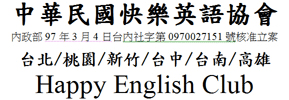According to http://en.wikipedia.org/wiki/Chinglish
"Welcome to"
One of the more noticeable cases of Chinglish, especially on mainland China, is the phrase welcome to. This is used as a direct translation in Chinese, "歡迎". It actually means "we invite you to" or "you are welcome to", and is used more as an incentive to the activity introduced or as a form of "thank you". Its use is almost always cordial, inviting, or otherwise positive. A more confusing matter arises with the usage of the phrase welcome again. The phrase is typically displayed in such a manner that it is seen at the end of activities such as bus rides or visits to bookstores, and would be translated as a message of thanks, and that the visitor is welcome back at any time. An equivalent phrase in English-speaking countries might be "Please come again."
Examples:
Welcome to ride Line 52 Bus = Thank you for riding Bus Line 52.
Welcome to ride Line 13 again = Thank you for riding Line 13, and we would be pleased to welcome you back aboard at any time.
Welcome to take my taxi = Thank you for taking my taxi.
Welcome to listen to my news = Thanks for tuning in!
Welcome to use ATM service = found very often on ATMs, means thanks for using this ATM.







